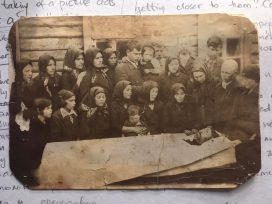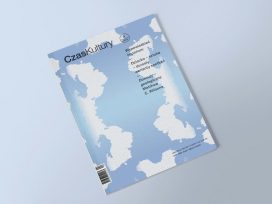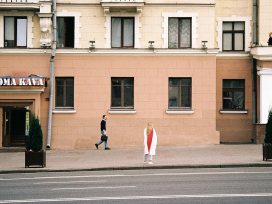Lithuania and neighbouring Belarus are clearly not located along the major routes taken by refugees and migrants into Europe. Lithuania has agreed to accept just over 1100 refugees, of whom only around 250 have actually arrived. Belarus signed a special treaty with the European Union guaranteeing assistance with the accommodation of hundreds of Russian citizens trying to apply for asylum in Poland. Most are Muslim migrants from Chechnya who are now to be accommodated in special camps created along the border near Brest. There is no sign of large-scale migration hitting either country in the near future. Yet the citizens of Belarus and Lithuania tend to project a non-specific fear, particularly onto Muslim migrants. In this respect, historical accounts of common social spaces and practices among Christians, Jews and Muslims in Central and Eastern Europe have almost no impact on the perception of migration today.
Many Lithuanians consider themselves to be morally superior, more civilized and better educated than their neighbours in Belarus. Lithuanians project these notions of superiority onto the places that they call Naugardukas, Polockas and Gardinas, otherwise known as the Belarusian cities of Navahrudak, Polack and Hrodna. These cities and the regions surrounding them once belonged to the Grand Duchy of Lithuania, a major power in eastern Europe several centuries ago. Today, Lithuanians view them with an affectionate yet at the same time contemptuous attitude. Belarus in this view is a poor brother, a museum of socialism, the last dictatorship of Europe. But when people in Vilnius and Minsk look at Berlin, Paris and Brussels and try to make sense of Europe’s ongoing migration crisis, Lithuanian and Belarusian societies seem quite similar: in both societies there is a widespread fear of an obscure kind of threat.
Merkel’s “mistake of the century”
Many people in central and eastern Europe and the Baltic states look at Germany and think that Angela Merkel made “the mistake of the century” in 2015. Although few refugees from Syria, Afghanistan or Iraq would ever think of applying for asylum in Lithuania or Belarus, events in Germany are followed just as closely as the war in eastern Ukraine. City- and country-dwellers alike are equally convinced that their own future is at stake.
Germany is currently viewed more positively than it has been for some considerable time, mostly on account of the state of its economy and its leadership in Europe. Yet large parts of Belarusian and Lithuanian society accuse Angela Merkel of not knowing what she is doing. She is supposed to have ruined the pretty picture of Germany that Lithuanians, for example, had maintained since the Cold War. I was at a doctor’s appointment in Vilnius and the nurse put it to me like this: “I love Germany. I love the sense of order, the prosperity, the punctuality. But now all those migrants are there – it’s horrendous.”
At the history faculty of a Lithuanian university with a tradition stretching back several centuries, I joke that “the Lithuanians always thought they were better than the Belarusians, but my students at the Belarusian university in Vilnius say exactly the same things as we hear from Lithuanian conservatives in the media – ‘Your typical refugee is a subversive economic entity with an invisible explosive vest’”. The answer comes back promptly: “But that’s the truth!”
Playing the devil’s advocate, I then ask my students to write an essay comparing the flight of Germans from East Prussia in 1944 with the exodus of people from the Middle East of 2015. Many of the essays reveal that students from Minsk have no trouble empathizing with the German women and children whose husbands and fathers served in the Wehrmacht and who might have set their grandparents’ villages on fire. In East Prussia the support for National Socialism was particularly enthusiastic. And yet the majority of students, despite weeks and weeks studying this very issue, have no empathy at all for today’s refugees from areas ravaged by civil war in the Middle East. Many take the view that their decision to leave for Europe was a voluntary one, that their “cultural foreignness” was an insurmountable problem and that their religion guaranteed the inexorable march of terror towards Europe. From this standpoint, the Paris attacks of 2015 were merely confirmation of what my students fear: that “these foreigners” will bring death with them. Few students recognize in our discussion that most of the terrorists were French and Belgian citizens.
This widely accepted form of xenophobia persists, although there are barely more than a few dozen planes taking off and landing in Vilnius and Minsk on a daily basis. Lithuania is situated on the extreme periphery of the European Union. As for Belarus, it is a de facto province of the Russian-speaking world, where Kremlin trolls systematically exploit fears of the Other in order to give credence to the notion of the end of Europe. Such xenophobia persists despite the fact that both Belarus and Lithuania are more culturally diverse than the average small town in eastern Germany.
An unacknowledged history of multiculturalism
In Belarus, just over 80 per cent of citizens are officially of Belarusian ethnicity. The national anthem opens with the line “We Belarusians are a peaceful people”, and tolerance is one of the most important values for many Belarusians. In a similar vein, Lithuania is a country that has been shaped by difference. While Lithuanian remains the only official state language, there are areas in Lithuania that are bilingual. Among them is the largest seaport, Klaipėda, where a majority of inhabitants speak both Lithuanian and Russian. Vilnius is surrounded by both Polish and Belarusian-speaking villages and small towns. Many of the capital’s half-a-million inhabitants are Lithuanian. But there are also schools, for example, where the language of instruction is Polish, Belarusian, Russian, English, Hebrew or Yiddish.
Both Belarusian and Lithuanian societies, moreover, can call upon a record of coexistence with Muslims that goes back centuries. Today, however, the presence of Muslim citizens tends to prompt negative attitudes. A survey by the Lithuanian Institute for Social and Ethnic Research in January 2016 shows that 73 per cent of Lithuanians have a negative attitude towards Muslims and 58 per cent would not like to have a Muslim neighbour.
Muslim Tatar fighters settled in the Grand Duchy of Lithuania as early as the seventeenth century. There are reports of Muslim prayers written in Belarusian vernacular in the 1920s, in Arabic script. Despite multidimensional processes of modernization, Sovietization, Polonization, Lithuanization and even Belarusification, descendants of Tatar communities still express their own identity as Lithuanian, Belarusian or Polish Tatars, although they comprise only a few hundred families spread across all three countries.
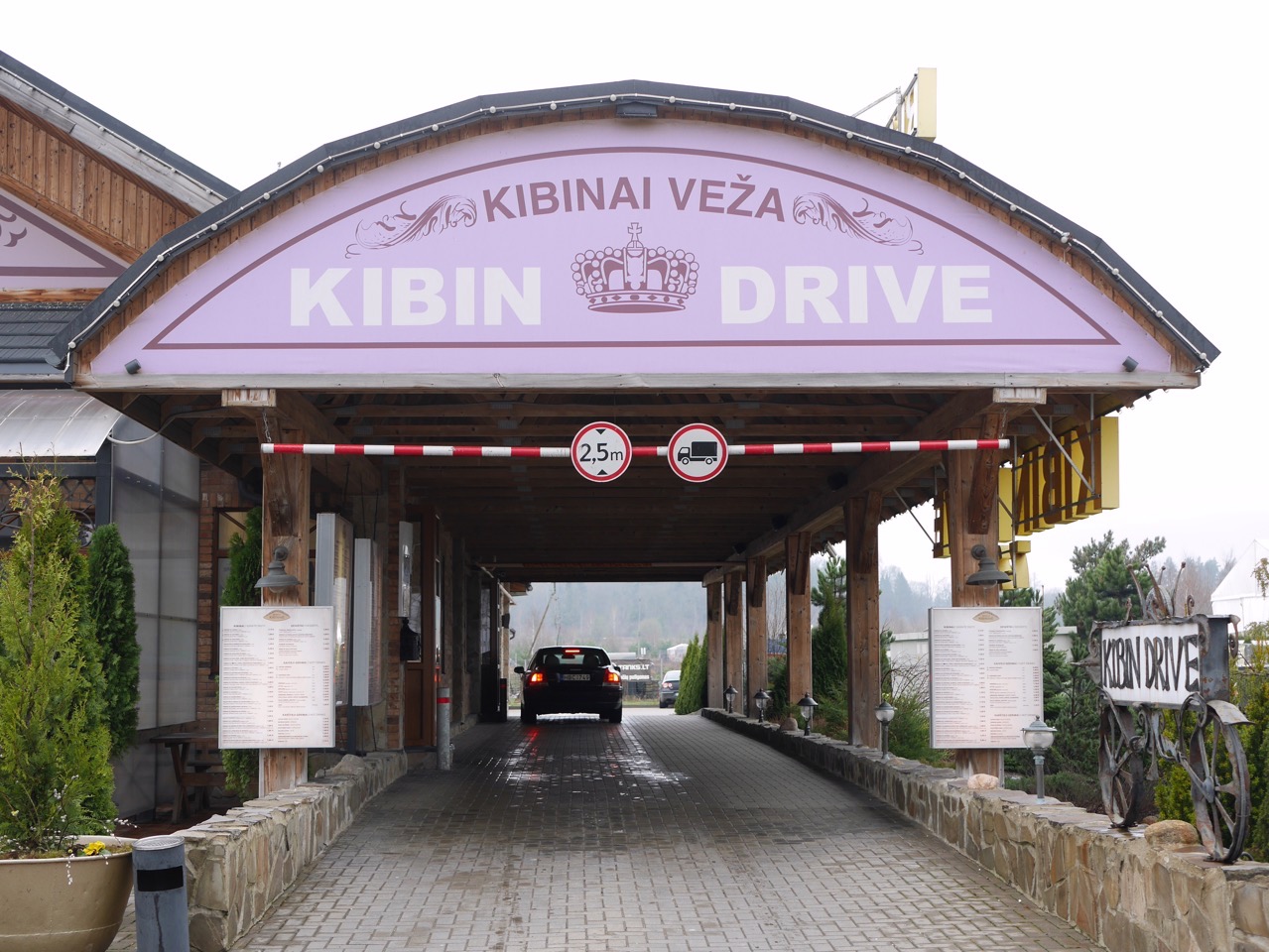
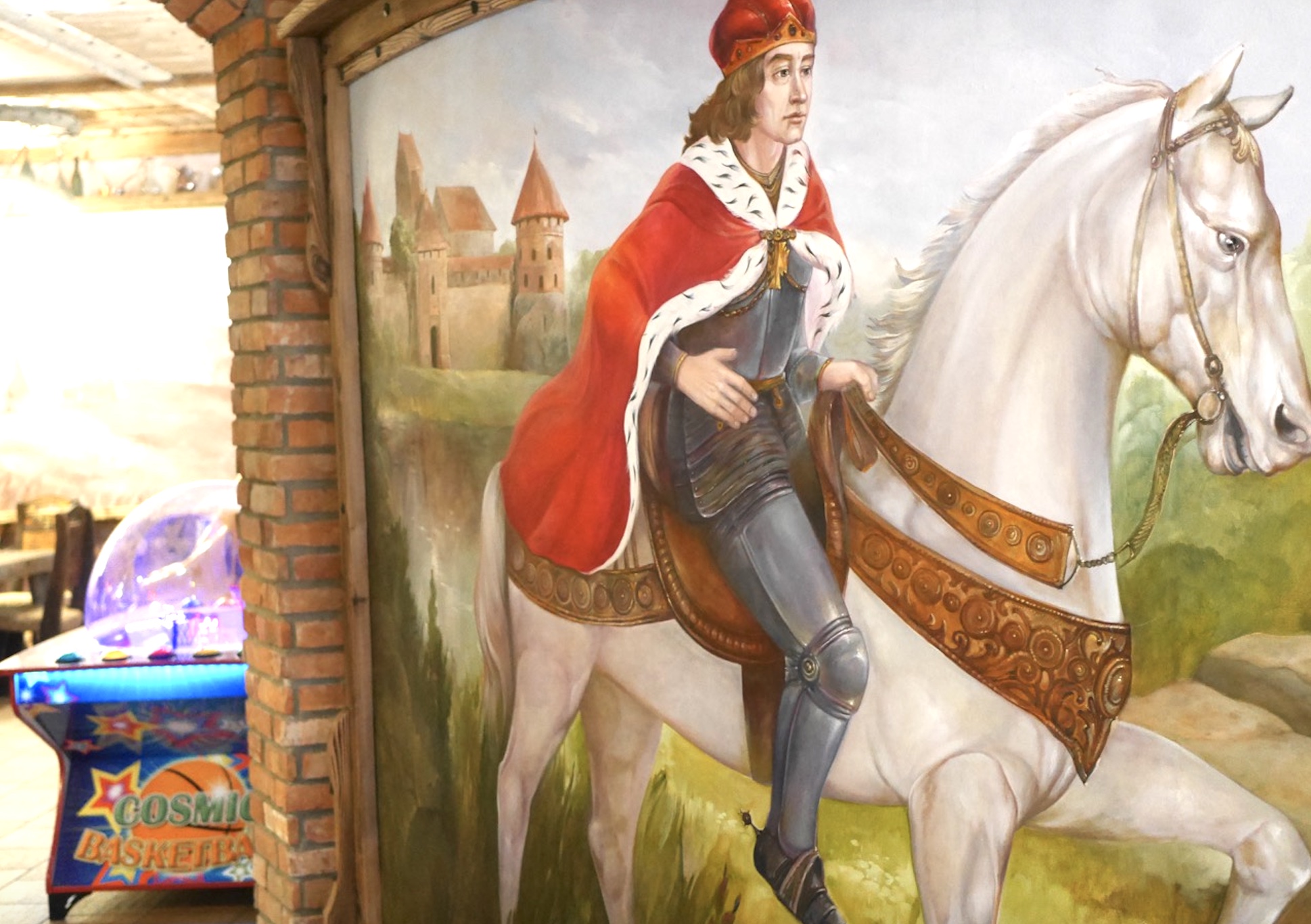
Top: A Kibinai fast food drive in. Below: Inside, a mural showing Grand Duke Vytautas, who granted rights to Jews and Karaim. Photos: Felix Ackermann
The most visible sign today of the historical existence of a non-Christian community is Lithuania’s most popular fast food: Kibinai. These short-crust pastries were originally filled with mutton and produced in the small town of Trakai, where Karaites were allowed to settle by the end of the fourteenth century. The Karaites are a Turkophone Semitic group, whose roots can be traced back to Crimea. They have been perceived as Jews in Lithuania for centuries, but started to forge their own distinctive way of life during the course of the nineteenth century. As a result, Lithuanian Karaites switched from the Hebrew to the Latin script. Although a very small group, they are now perceived, along with the small Tatar and Jewish communities of Lithuania, as living evidence of an earlier form of multiculturalism. Economic, symbolic and political capital has been made out of the country’s heritage – with the touristic hotspot of Trakai being a case in point. Here, a reconstructed water castle symbolizes the power of the Grand Duchy and Karaite restaurants provide a taste of its multicultural flavour.
In a small UNESCO gallery in Vilnius’s baroque old town there was recently an exhibition about Islam in Lithuania. The message was clear: Islam is part of Lithuania. But the majority of the population doesn’t want to listen. Since the Paris attacks, and even more so since the 2016 Brussels bombings, Lithuanian media have been almost more concerned with refugees than with Vladimir Putin – and that is saying something. In 2016 there have been around 397,000 mentions of “refugees” in the countries’ largest news portal Delfi, while “Vladimir Putin” was mentioned around 303,000 times.
One important cause of this dynamic is the sense of the nation’s sovereignty coming under threat from the European Union. Independence was declared only 25 years ago and many in Lithuanian society still do not see their national identity as strong enough to withstand the challenges of globalization. Angela Merkel’s rallying cry of “We can do this!”, which initially was directed at German society, is interpreted in Lithuania as implying accelerated globalization. And for a country with fewer than three million inhabitants, of which almost half-a-million belong to minorities and another half-a-million are employed in England, Scotland or Ireland, globalization means the prospect of the effacement of one’s own identity.
This is also a consequence of the widespread idea of “the people” as a collective unit that has only one body. This reinforces the sense of the nation as being finite, because its “body” is considered mortal. The decision in 1991 to found the new Republic of Lithuania following the folkloristic principles of Herder’s concept of the nation means that this fear manifests itself today principally in terms of language. State authorities, as well as many citizens, consider the Lithuanian language to be under genuine threat from globalization – refugees or no refugees. The fight for the Lithuanian language is primarily fought on the home front. Surprisingly, the archenemy is portrayed not as the Russian-speaking minority, but the Poles living in and around Vilnius.
When written Lithuanian was belatedly standardized, the letter “W” was proscribed as early as the nineteenth century – it was regarded as Polish. As a consequence, Lithuanian citizens who today belong to Polish families bearing the typical surname Wojniewicze, also the name of a village on the Lithuanian-Belarusian borderland and historically spelt as such, are obliged to spell their name as “Vojnievič” in official documents: an obvious case of discrimination responsible for a crisis in foreign relations between Lithuania and Poland that has lasted years.
The situation in Belarus appears to be different, because the national movement there was never as successful as in Lithuania. It was never able to create a political regime that aimed at ethnic homogeneity within the country. As a result, the two official languages – Russian and Belarusian – operate in parallel, although Russian has clearly come out on top. Yet in the north-west of the country there is a Polish minority that is faced with considerable political restrictions, a comparable situation to the one in south-eastern Lithuania.
Also, across Belarus, there is no tolerance when it comes to Muslim migrants. Following the assaults on women in Cologne over New Year’s Eve in 2015, horror stories about Muslim migrants could be read online in Russian, stories similar in tone to those currently found in alternative German-language media authored by “concerned citizens”. Recently, the Belarusian minister of internal affairs announced that Belarus was at the centre of various migration routes and that the state was preparing for potential refugees from the Middle East. The nationalist opposition reacted immediately with a public call against Muslim immigration into Belarus, which supposedly harm Belarusian culture and identity.
Re-discovering the ‘Other’
In the domestic public perception of events in Lithuania and Belarus, some basic attitudes can be attributed to the sensationalized approach of the media to the migration crisis and its causes. At the same time, thousands of students from predominantly Muslim Turkmenistan study in Minsk, for example, and live side by side with Belarusians with relatively little conflict.
The habit of projecting prejudices onto religious minorities in the form of economic, cultural and religious anxieties has existed in Lithuania since the early modern age, in a non-nation based sense. It continued alongside the relatively peaceful coexistence of Catholics, Protestants, Orthodox Christians, Jews and even Muslims for centuries. But following the mass murder of Jews in the Holocaust, those who for centuries had been the primary target of projections onto “the Other” disappeared.
With the recent migration crisis, many Lithuanians have rediscovered “the Other” in Muslim refugees and migrants. My students’ essays at the Belarusian expatriate university in Vilnius clearly show that this mechanism is also at work in the case of Belarusians, even though they perceive themselves as being fundamentally tolerant. Despite the fact that they themselves enjoy the privilege of studying in the European Union, most students feel no empathy with the Syrians whose cities are still being bombed as I write.
This article was enabled with the support of the S. Fischer Stiftung.
See also: Debates on Europe series, created by S. Fischer Foundation, the German Academy of Language and Literature, and Allianz Cultural Foundation, in cooperation with Eurozine. The topic of the series is “Neighbourhood in Europe: Prospects of a common future”. The St. Petersburg Debate on Europe took place from 15 to 18 May 2016, with public sessions on the evening of 17 May.





